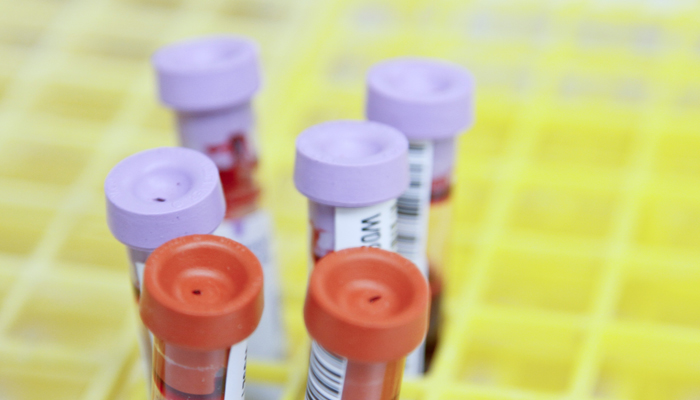SIBO & IBS: What Causes SIBO & Why it’s the Root Cause of IBS
If you are like many people who suffer from IBS (Irritable bowel syndrome), you have likely been told that your IBS has no known cause and that you just have to deal with it, take some Linzess, and maybe cut out caffeine, dairy or alcohol. Although all those interventions may help a little for symptom relief, they will not make the problem go away. That is because a large majority of folks who get labeled as IBS really have something called small intestinal bacterial overgrowth or SIBO.
In addition, SIBO can coincide with small intestinal fungal overgrowth (SIFO) and small intestinal parasite overgrowth (SIPO)—but those are topics for another blog post. First, let dive into the symptoms of SIBO and how this ends up being labeled as IBS.
Amazingly, there is no test that can definitely diagnose IBS such as a colonoscopy, blood or stool test. It is a diagnosis of exclusion and in most cases the label is given to people who exhibit any of the following:
- Bloating
- Diarrhea
- Urgency
- Constipation
- Gas
- Increased frequency of stooling
- Abdominal pain
For many years IBS was thought to “psychogenic” in nature—that is completely caused by stress or emotional distress. Although stress does play a large role in IBS, it’s not the only factor. In fact, the presence of SIBO in patients with IBS is much greater than in the normal population.
What is SIBO?
As described, SIBO is an overgrowth of bacteria in the small intestine. It is NOT an infection. You see we have a lot of bacteria in our lower intestinal tract or colon. This is our microbiome, and these trillions of bacteria are essential to human life and are responsible for immune health, neurotransmitter production, detoxification and other important jobs.
However, for different reasons, these harmless or “commensal” bacteria sometimes find their way north up to the small intestine, where they shouldn’t be. Although we do have bacteria in the small intestine, somewhere in the 10,000 – 1,000,000 colony forming unit range, it doesn’t come close to the trillions of bacteria that flourish in the colon.
The small intestine is where the bulk of food digestion and absorption occurs in the body. By the time food reaches the large intestine, there is some water and mineral absorption but the remainder of leftover fiber and starch feed our bacteria here causing fermentation as well as creation of protective short chain fatty acids which act as fuel for our intestinal cells. In addition, waste and toxins are readied here for expulsion from the body with the next bowel movement.
What Causes SIBO?
When there is an abundance of bacteria in the small intestine, fermentation starts happening on all the available sugars, carbohydrates, fibers and starches. This is not good. Think about what happens when fermentation of beer or wine occurs. In the case of alcohol fermentation, the presence of sugars and grains are the food for the yeast, which causes a huge release of gases and carbonation over time.
A similar process starts in our small intestine when we have bacterial overgrowth. As food is fermented by different species of bacteria, there are several gases released. These are methane gas, and hydrogen gas which are responsible for the bloating, pain, burping, or flatulence which are common symptoms of IBS and SIBO.
What is the Migrating Motor Complex?
Another major factor in the etiology and persistence of SIBO is damage to something called the migrating motor complex or MMC. These are electrical waves present in the smooth muscle of the intestinal tract and these complexes create peristaltic movement starting in the stomach and moving on towards the colon.
The MMC is an essential aspect of intestinal housekeeping and moves food, waste and bacteria through the digestive tract when we are in a fasted state. The MMC is active every 90 minutes to 4 hours between meals and overnight when we are not eating. When the MMC is damaged, bacteria is not pushed down to the colon adequately and can take up residence in the small intestine where it can overgrow due to the rich supply of food and less competition by other bacteria. In addition, failure of the MMC to work adequately can cause chronic constipation or diarrhea.
How Does Our MMC Get Damaged?
Although there are several theories as to how the MMC stops working well, there are several known causes.
1. Food poisoning or traveller’s diarrhea
Research done by Dr. Mark Pimentel, one of the leading experts in SIBO, has shown that the infection with several bacteria usually picked up by contaminated food or water causes a damaged MMC. The big offenders are Shigella, Salmonella, Campylobacter and some forms of E.coli. These bacteria produce a toxin called cytolethal-distending toxin (Cdt) that damage the GI lining causing typical food poisoning symptoms. Our immune system then produces an antibody against the toxin in an effort to clear it.
The problem is that this antibody can also cross react with a protein called Vinculin which is present in our intestinal muscle wall. When vinculin is damaged, our MMC is damaged too. This autoimmune like reaction then results in motility problems just like we see in IBS.
2. Methane producing bacteria
In cases of constipation dominant IBS, breath tests for SIBO will often reveal high levels of methane gas. It is thought that ancient single celled organisms called Archaea present in the intestines are responsible for the production of methane. When the Archaea overgrows, large amounts of methane are produced which may be responsible to damaging the MMC leading to slowed transit and constipation.
3. Stress & the vagus nerve
The MMC is under the control of several parts of our central nervous system, certain hormones and also our vagus nerve. Our vagus nerve travels down from the brain and innervates many organs along the way including our heart, lungs and GI tract. Excess stress and stress hormones like cortisol can negatively affect our vagal nerve function hence disrupting our normal gut motility. This is why so many IBS and SIBO sufferers notice flares in their symptoms when they are under increased stress
What is the Solution?
Now that we understand the link between SIBO and IBS and what may be going on underneath the hood, we can talk about the next steps.
- How do you get proper testing for SIBO and what are the pitfalls and shortcomings of testing?
- How do I know if I have SIFO or SIPO as well?
- What are the best treatment protocols for SIBO?
- What diets, supplements and lifestyle changes are necessary to clear SIBO for good and banish your IBS symptoms?
All of this will be discussed in the next few special blog posts on SIBO, so stay tuned.
Do you have symptoms that align with SIBO? We treat SIBO in both medical and nutrition programs. Submit a quick survey here to be contacted by our care coordinator to find out how we can help you resolve GI issues and get you back to living your life.





